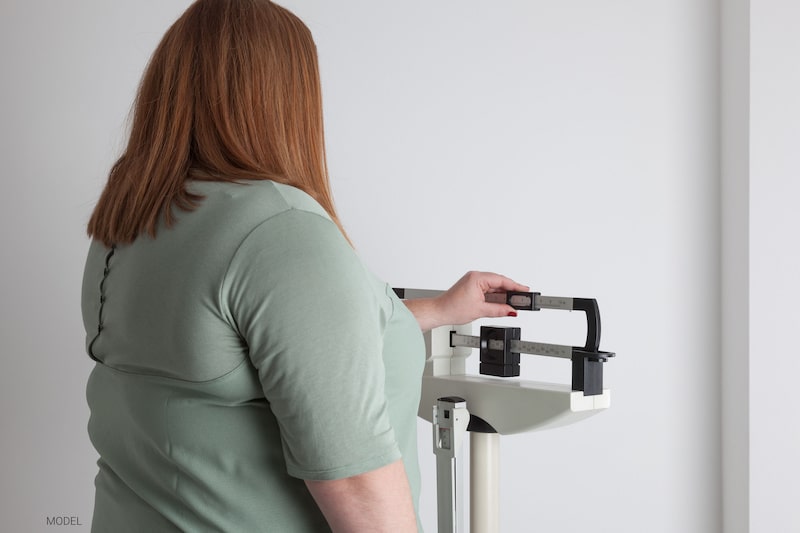April 03, 2023 | Tummy tuck
4 minute read
3 Minute Read:
Many people depend solely on the numbers on the scale to tell if they are healthy or not. And while keeping an eye on your weight is important, making sure that your BMI (body mass index) is at a good level is a much better indicator of your overall health.
That is because BMI takes into account body fat and height. And if you want to find your BMI number, then you can use this BMI calculator.

BMI is especially important if you are interested in undergoing a cosmetic procedure, such as a tummy tuck. Tummy tuck surgery (medically known as abdominoplasty) is an effective procedure for women and men looking to remove pockets of excess fat in the upper and lower stomach, tighten abdominal muscles (correcting diastasis recti), and remove sagging skin in the midsection to achieve a more contoured and tighter appearance.
In addition to tummy tuck surgery, many patients choose to have liposuction surgery performed (either in their midsection or in other areas of their bodies).
Before you have a body contouring procedure performed, you should make sure that your BMI is at a healthy level. And if it isn’t, then you will likely need to lower it before undergoing your desired cosmetic procedure.
Why Do I Need to Have a Healthy BMI Before Plastic Surgery?
Despite many misconceptions, body contouring procedures like tummy tuck surgery and liposuction surgery are not meant for weight loss. While it’s true that fat will be removed from your body, and you may lose a few pounds, the amount of weight lost is not significant enough to help you become as healthy as you should be, and it will not significantly help with a high BMI or obesity.
There are several benefits of having a healthy BMI before your plastic surgery. Having a high BMI can slow down your recovery and cause you more discomfort during that period. Not only will having a high BMI keep you from achieving the results you are looking for, but it can increase complications during your surgery, including:
- Risks with anesthesia
- Issues with the organs (including the liver and heart)
- Issues with the immune system
- Fat necrosis
- Increased and prolonged inflammation
How to Lower BMI?
A good and healthy BMI number is anything between 18.6 and 24.9; however, women and men with a BMI under 30 are usually considered candidates for plastic surgery. Your specific candidacy will be evaluated during your consultation, but if you have a high BMI (over 30), then you will need to lower it before you can safely have cosmetic surgery performed.
There are a couple ways that you can lower your BMI. The first is standard diet and exercise. Eating right, drinking plenty of water, and keeping yourself active can help you shed those extra pounds and lower your BMI number.
The second method for lowering BMI to a healthy number is weight loss surgery: bariatric surgery (such as gastric bypass surgery).
In the End…
Having a healthy BMI allows more than candidacy for a cosmetic procedure. A stable weight and BMI will allow you to live a healthier and better life, and plastic surgery can help you look the way you desire so that you can have increased confidence and comfort with your appearance.
Because BMI is a factor in plastic surgery candidacy, you need to make sure that you are healthy and that your body is prepared for a cosmetic procedure (as well as the recovery period).
Do You Have Any Questions?
If you want to see if you are a candidate for tummy tuck surgery or any other body contouring procedures, make sure to schedule a consultation with Dr. Bonaldi and his team by calling (775) 238-3051.
You may also fill out our online contact form for more information.





